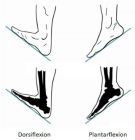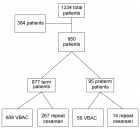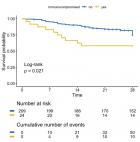Abstract
Case Report
Effectiveness of prenatal intensive counselling on knowledge, attitude and acceptance of post placental intrauterine contraceptive device among mothers
M Shanthini, Manjubala Dash*, A Felicia Chitra, S Jayanthi and P Sujatha
Published: 27 March, 2020 | Volume 3 - Issue 1 | Pages: 021-025
Introduction: Contraception is a method or device used to prevent pregnancy. In the first year of postpartum period around 65% of women are having unmet need of family planning. Post Placental Intrauterine Contraceptive Device is not only advantageous to the women and couples; even the service providers benefit from PPIUCD. PPIUCD insertion on the same delivery table saves time and separate clinical procedure is not required.
Methodology: The Quantitiative Pre-Experimental One Group Pre and Post Test research design was used. 70 Antenatal mothers were selected by using Purposive Sampling Technique who fulfilled the inclusion criteria and who were available during the period of data collection at selected hospital, Puducherrry. Data was collected by using Structured Interview Schedule.
Result: The Pre test mean score of Knowledge was 9.98 ± 2.38 and Post Test mean score of Knowledge was 14.91 ± 1.15. The calculated paired‘t’ value was (-20.82) found to be statistically significant at p < 0.001 level. The Pretest mean score of Attitude was 34.67 ± 5.67 and Post test mean score of Attitude was 44.27 ± 4.70. The calculated paired‘t’ value was (-17.25) found to be statistically significant at p < 0.001 level. The Pretest mean score of Acceptance was 0.11 ± 0.320 and Post Test mean score of Acceptance was 0.29 ± 0.455. The paired‘t’ value of t = -3.778 found to be statistically significant at p < 0.001 level. The Demographic and Obstetrical Variables like age at marriage, previous childbirth and decision maker of family about family planning have shown significant association with Post Test level of Knowledge, Attitude and Acceptance of PPIUCD at p < 0.05 and p < 0.001.
Conclusion: The researcher concluded that Prenatal Intensive Counselling increases the mother’s Knowledge, Attitude and Acceptance of PPIUCD. So Prenatal Intensive Counselling on PPIUCD can be given to Antenatal Mothers during their antenatal visits to meet the unmet needs of family planning.
Read Full Article HTML DOI: 10.29328/journal.cjog.1001044 Cite this Article Read Full Article PDF
Keywords:
Post placental intrauterine contraceptive Device; Prenatal intensive counselling
References
- Shaanthy TK. A cross sectional study on willingness and acceptability: PPIUCD by primipara mothers at a tertiary care hospital, Tamil Nadu, India. Int J Reproductive, Contraceptive, Obstetrics, Gynecol. 2017; 6: 3030-3034.
- IUCD Reference Manual for MOs and Nursing Personnel; 2013. http://www.nrhmtn.gov.in/modules/IUCD_Reference_Manual_for_MOs_and_Nursing_Pwersonne_-Final-Sept_2013.pdf.
- Chauhan R. Evaluation of acceptability, safety and expulsion of PPIUCD, India. Int J Reproductive, Contraception, Obstetrics, Gynecol. 2018; 3: 1083-1089.
- Cleland J, Bernstein S, Ezeh A, Faundes A, Glasier A, et al. Family Planning: The unfinished agenda. Lancet. 2006; 368: 1810-1827. PubMed: https://www.ncbi.nlm.nih.gov/pubmed/17113431
- Janwadkar A. Acceptance, perception, experience and satisfaction of the couple with postpartum intrauterine, contraceptive devices (PPIUCD) insertion, Pune. Asian Pacific J Health Sci. 2016; 3 55-64.
- Cwiak C, Gellasch T, Zieman M. Peripartum contraceptive attitudes and practices. Contraception. 2004; 70: 383-386. PubMed: https://www.ncbi.nlm.nih.gov/pubmed/15504377
- Engin-Ustün Y, Ustün Y, Cetin F, Meydanli MM, Kafkasli A, et al. Effect of postpartum counselling on postpartum contraceptive use. Arch Gynaecol Obstet. 2007; 275: 429-432. PubMed: https://www.ncbi.nlm.nih.gov/pubmed/17136370
- Akman M1, Tüzün S, Uzuner A, Başgul A, Kavak Z. The Influence of prenatal counselling on Postpartum contraceptive choice, Turkey. J Int Med Res. 2010; 38: 1243-1249. PubMed: https://www.ncbi.nlm.nih.gov/pubmed/20925996
- Nelson A. Intrauterine contraceptive. J Obstet Gynecol. 2008; 6: 219-224.
- Postpartum IUCD Insertion Manual. Nirman Bhavan, New Delhi 110001: Family Planing Division. Ministry of Health and Family Welfare. Government of India; 2010.
- Sharma A. A study of awareness and factors affecting Acceptance of PPIUCD in South-East Rajasthan, India. Int J Community Medicine and Public Health. 2017; 4: 2706-2710.
- Sanskriti P. Post-partum intrauterine device insertion: the unfinished agenda. New Indian J Surg. 2011; 2: 245-247.
- Bhasin SK, Pant M, Mehta M, Kumar S. Prevalence of usage of different contraceptive methods in East Delhi-a cross sectional study. Indian J Community Med. 2005; 30: 53-5.
- Katheit G. Evaluation of post-placental intrauterine device (PPIUCD) in terms of awareness, Acceptance and expulsion in a tertiary care centre, Madhya Pradesh. Int J Reproductive, Contraception, Obstetrics, Gynecol. 2013; 2: 539-543.
- Deshpande S. Awareness, acceptability and clinical outcome of post placental insertion of intrauterine contraceptive device in Marathwada region, India. Indian J Obstetrics, Gynecol Res. 2017; 4: 77-82.
- Darmayanti PA. Differences in Post Placental Intrauterine Device acceptance with and without couples counselling in private practice midwifery clinics, West Denpasar. Public Health and Preventive Medicine Archive. 2018; 6: 4-9.
- Ndegwa SW. The effect of two levels of counselling on acceptance, uptake and early outcome of the post placental intrauterine contraceptive device. Nairob. University of Nairob medical library. 2007; 1-30.
- Gara M. Effectiveness of Structured teaching Programme on PPIUCD (Post Placental Intrauterine Contraceptive Device among Primigravida Mothers in Selected MCH centre, Tirupati, India. Int J Practical Nursing. 2014; 2: 87-91.
Similar Articles
Recently Viewed
-
Impact of Refractive Error Correction on Vision Related Quality of Life in School-Aged Children-A Prospective Interventional StudyAshok Rathi*,Sonam Gill,RS Chauhan,Jyoti Deswal,Abhishek Sagar,Nipun Rathi. Impact of Refractive Error Correction on Vision Related Quality of Life in School-Aged Children-A Prospective Interventional Study. Int J Clin Exp Ophthalmol. 2025: doi: 10.29328/journal.ijceo.1001061; 9: 011-017
-
The “sweet” relations between diabetes and plateletsNikolaos Neokleous*,Stavroula Mpountola,Vasileios Perifanis. The “sweet” relations between diabetes and platelets. J Hematol Clin Res. 2022: doi: 10.29328/journal.jhcr.1001019; 6: 001-003
-
Role of RBC Parameters to Differentiate between Iron Deficiency Anemia and Anemia of Chronic DiseasesReena Bhaisare*, Ravindranath M, Gurmeet Singh. Role of RBC Parameters to Differentiate between Iron Deficiency Anemia and Anemia of Chronic Diseases. J Hematol Clin Res. 2023: doi: 10.29328/journal.jhcr.1001024; 7: 021-024
-
Return to Driving in Mild Traumatic Brain Injury: Evaluation of Coping Strategies, Resilience, and Psychological DistressTisha J Ornstein*,Erica S Reyvas,Maire L O’Hagan,Samantha R Pejic. Return to Driving in Mild Traumatic Brain Injury: Evaluation of Coping Strategies, Resilience, and Psychological Distress. Insights Depress Anxiety. 2025: doi: 10.29328/journal.ida.1001043; 9: 001-011
-
Development and Evaluation of a mHealth app - (ReMiT-MS app) for Rehabilitation of Individuals with Relapsing-remitting Multiple Sclerosis - A Mixed Methods, Pragmatic Randomized Controlled Trial - Study ProtocolSolaiyan Rajanchellappa, Dheeraj Khurana*, AGK Sinha, Soundappan Kathirvel, Ashok Kumar, Rajni Sharma. Development and Evaluation of a mHealth app - (ReMiT-MS app) for Rehabilitation of Individuals with Relapsing-remitting Multiple Sclerosis - A Mixed Methods, Pragmatic Randomized Controlled Trial - Study Protocol. J Nov Physiother Rehabil. 2024: doi: 10.29328/journal.jnpr.1001060; 8: 022-030
Most Viewed
-
Feasibility study of magnetic sensing for detecting single-neuron action potentialsDenis Tonini,Kai Wu,Renata Saha,Jian-Ping Wang*. Feasibility study of magnetic sensing for detecting single-neuron action potentials. Ann Biomed Sci Eng. 2022 doi: 10.29328/journal.abse.1001018; 6: 019-029
-
Evaluation of In vitro and Ex vivo Models for Studying the Effectiveness of Vaginal Drug Systems in Controlling Microbe Infections: A Systematic ReviewMohammad Hossein Karami*, Majid Abdouss*, Mandana Karami. Evaluation of In vitro and Ex vivo Models for Studying the Effectiveness of Vaginal Drug Systems in Controlling Microbe Infections: A Systematic Review. Clin J Obstet Gynecol. 2023 doi: 10.29328/journal.cjog.1001151; 6: 201-215
-
Prospective Coronavirus Liver Effects: Available KnowledgeAvishek Mandal*. Prospective Coronavirus Liver Effects: Available Knowledge. Ann Clin Gastroenterol Hepatol. 2023 doi: 10.29328/journal.acgh.1001039; 7: 001-010
-
Causal Link between Human Blood Metabolites and Asthma: An Investigation Using Mendelian RandomizationYong-Qing Zhu, Xiao-Yan Meng, Jing-Hua Yang*. Causal Link between Human Blood Metabolites and Asthma: An Investigation Using Mendelian Randomization. Arch Asthma Allergy Immunol. 2023 doi: 10.29328/journal.aaai.1001032; 7: 012-022
-
An algorithm to safely manage oral food challenge in an office-based setting for children with multiple food allergiesNathalie Cottel,Aïcha Dieme,Véronique Orcel,Yannick Chantran,Mélisande Bourgoin-Heck,Jocelyne Just. An algorithm to safely manage oral food challenge in an office-based setting for children with multiple food allergies. Arch Asthma Allergy Immunol. 2021 doi: 10.29328/journal.aaai.1001027; 5: 030-037

HSPI: We're glad you're here. Please click "create a new Query" if you are a new visitor to our website and need further information from us.
If you are already a member of our network and need to keep track of any developments regarding a question you have already submitted, click "take me to my Query."

















































































































































